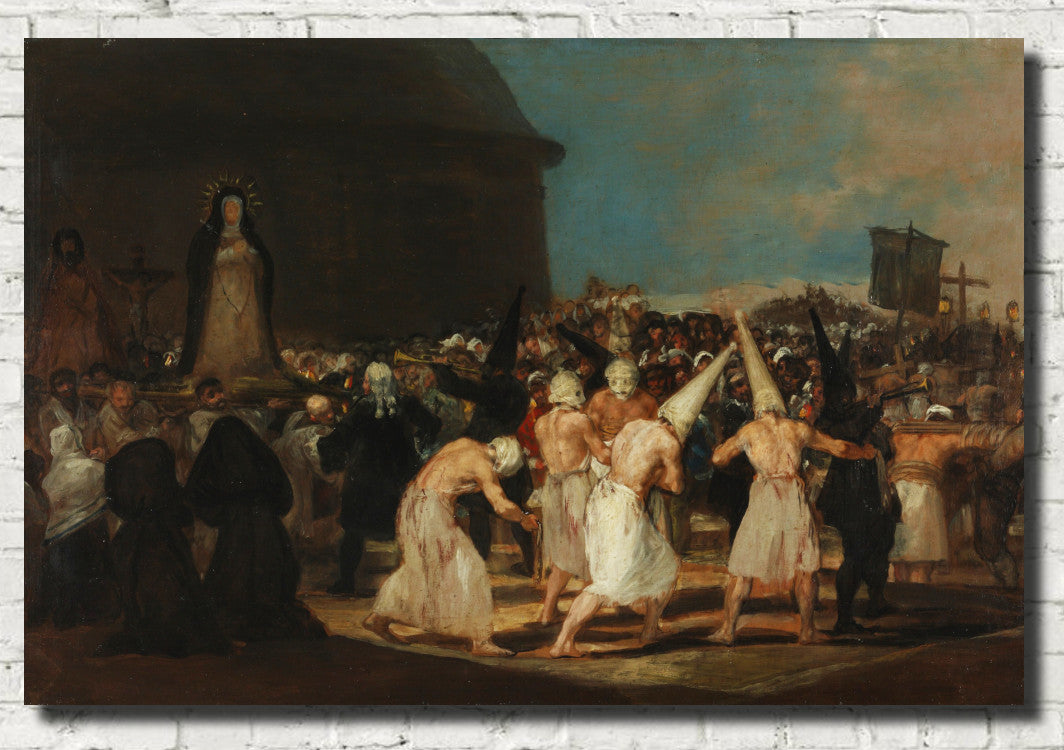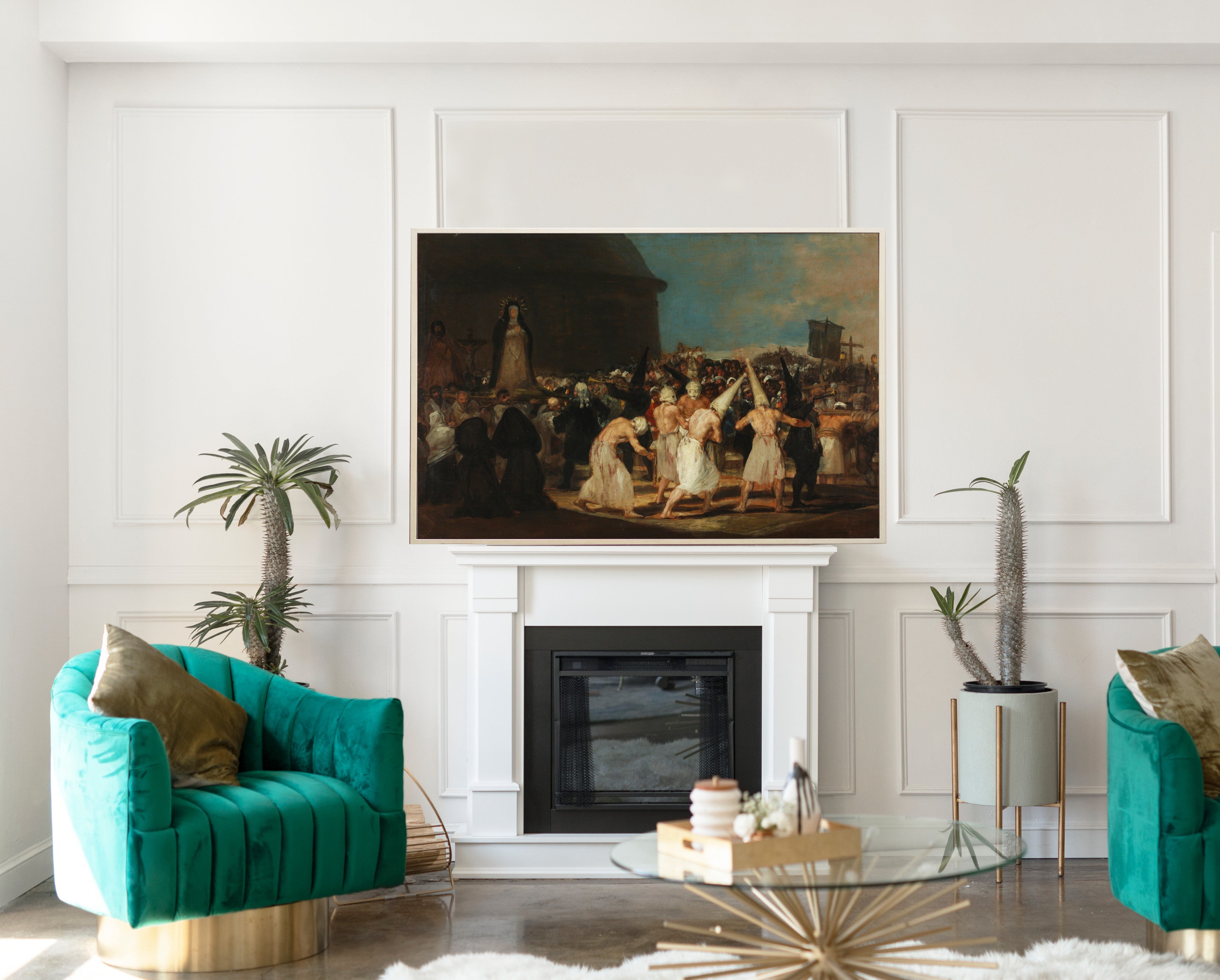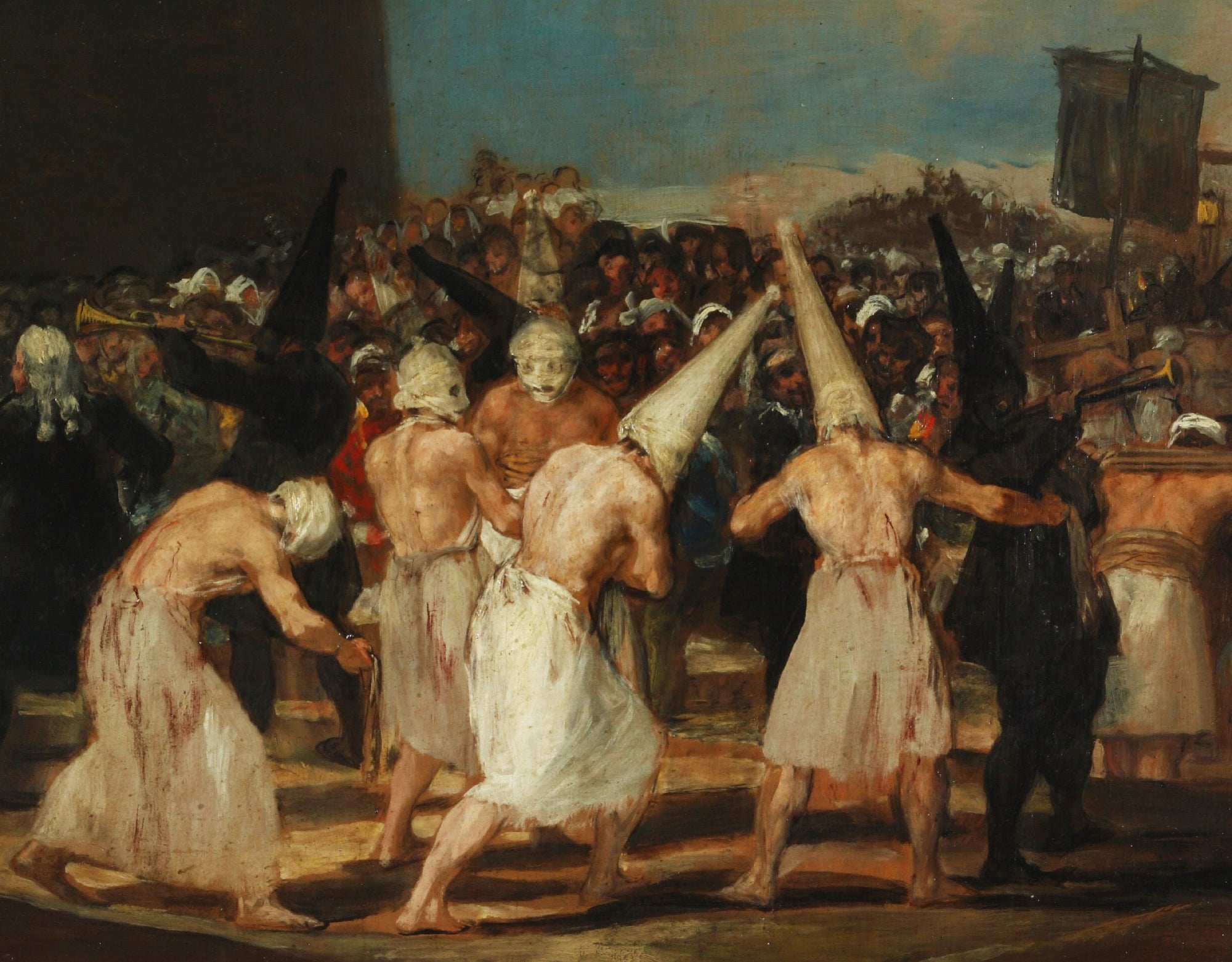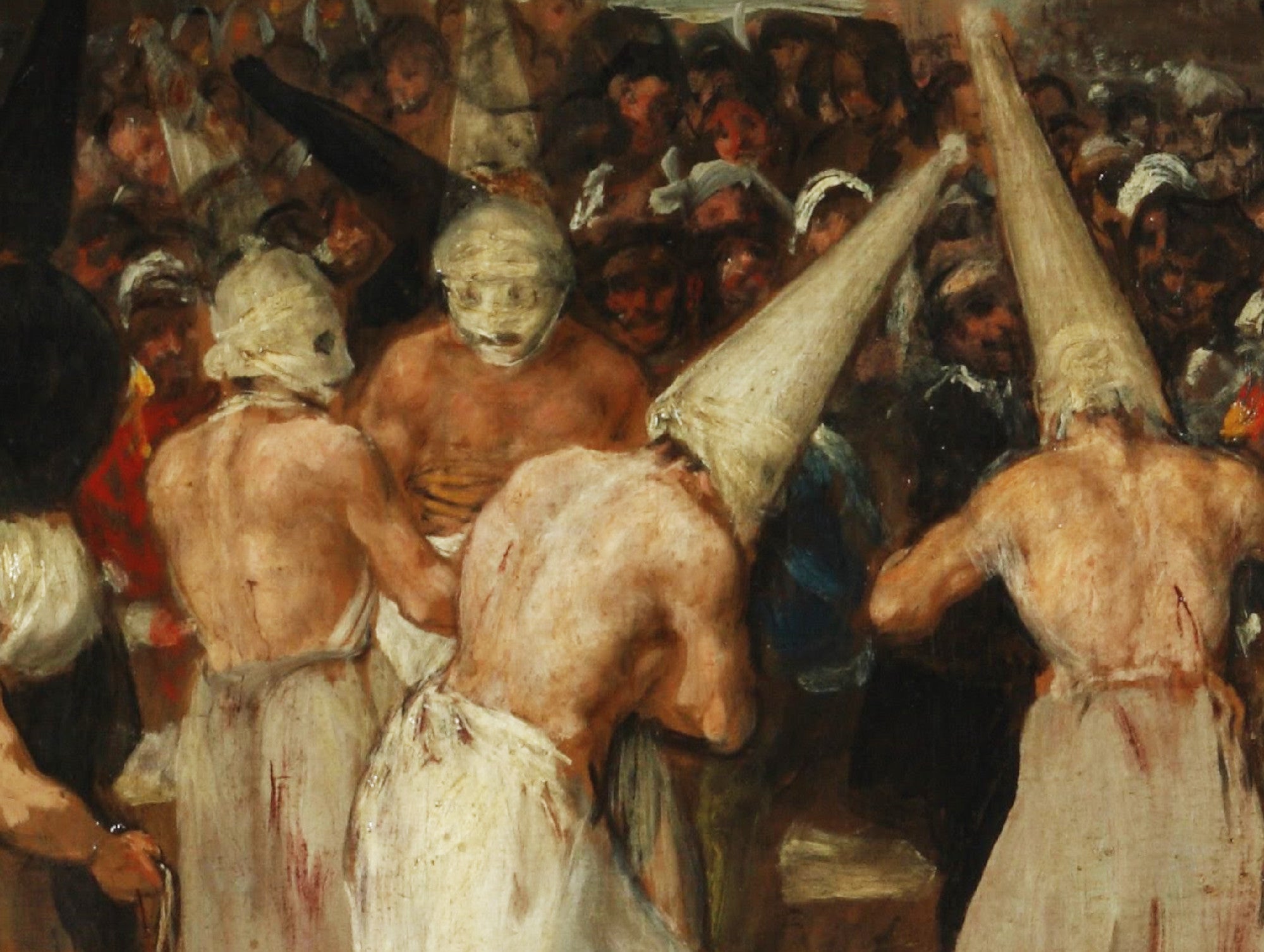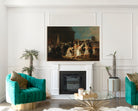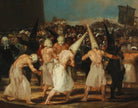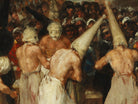A Procession of Flagellants, Francisco Goya Fine Art Print
Couldn't load pickup availability

A Procession of Flagellants, Francisco Goya Fine Art Print
Francisco José de Goya y Lucientes (30 March 1746 – 16 April 1828) was a Spanish romantic painter and printmaker. He is considered the most important Spanish artist of the late 18th and early 19th centuries and throughout his long career was a commentator and chronicler of his era. Immensely successful in his lifetime, Goya is often referred to as both the last of the Old Masters and the first of the moderns. He was also one of the great portraitists of his time.
Goya was born to a lower-middle-class family in 1746, in Fuendetodos in Aragon. He studied painting from age 14 under José Luzán y Martinez and moved to Madrid to study with Anton Raphael Mengs. He married Josefa Bayeu in 1773; their life was characterised by an almost constant series of pregnancies and miscarriages, and only one child, a son, survived into adulthood. Goya became a court painter to the Spanish Crown in 1786 and this early portion of his career is marked by portraits of the Spanish aristocracy and royalty, and Rococo style tapestry cartoons designed for the royal palace.
He was guarded, and although letters and writings survive, little is known about his thoughts. He suffered a severe and undiagnosed illness in 1793 which left him deaf, after which his work became progressively darker and pessimistic. His later easel and mural paintings, prints and drawings appear to reflect a bleak outlook on personal, social and political levels, and contrast with his social climbing. He was appointed Director of the Royal Academy in 1795, the year Manuel Godoy made an unfavorable treaty with France. In 1799, Goya became Primer Pintor de Cámara (Prime Court Painter), the highest rank for a Spanish court painter. In the late 1790s, commissioned by Godoy, he completed his La maja desnuda, a remarkably daring nude for the time and clearly indebted to Diego Velázquez. In 1800–01 he painted Charles IV of Spain and His Family, also influenced by Velázquez.
In 1807, Napoleon led the French army into the Peninsular War against Spain. Goya remained in Madrid during the war, which seems to have affected him deeply. Although he did not speak his thoughts in public, they can be inferred from his Disasters of War series of prints (although published 35 years after his death) and his 1814 paintings The Second of May 1808 and The Third of May 1808. Other works from his mid-period include the Caprichos and Los Disparates etching series, and a wide variety of paintings concerned with insanity, mental asylums, witches, fantastical creatures and religious and political corruption, all of which suggest that he feared for both his country's fate and his own mental and physical health.
His late period culminates with the Black Paintings of 1819–1823, applied on oil on the plaster walls of his house the Quinta del Sordo (House of the Deaf Man) where, disillusioned by political and social developments in Spain he lived in near isolation. Goya eventually abandoned Spain in 1824 to retire to the French city of Bordeaux, accompanied by his much younger maid and companion, Leocadia Weiss, who may or may not have been his lover. There he completed his La Tauromaquia series and a number of other, major, canvases.
Following a stroke which left him paralyzed on his right side, and suffering failing eyesight and poor access to painting materials, he died and was buried on 16 April 1828 aged 82. His body was later re-interred in the Real Ermita de San Antonio de la Florida in Madrid. Famously, the skull was missing, a detail the Spanish consul immediately communicated to his superiors in Madrid, who wired back, "Send Goya, with or without head."
8x12 inches
12x18 inches
16x24 inches
20x30 inches
24x36 inches
And as a stretched canvas panel (heavy fine art canvas stretched over 1.5 inch deep edge solid wood frame)


Canvas panel sizes:
8x12 inches
16x24 inches
20x30 inches
All prints are made using archival art stocks and UV pigment inks to give up to 200 years life. Prints are sold unframed and unmounted.
All orders for unframed fine art prints and original paintings are dispatched within 2 working days of receipt of payment.
Orders for custom framed prints are dispatched within 4 working days.
All orders are fully tracked from dispatch to delivery at your home or business.
All print and original painting orders are fully insured against loss or damage in transit. We refund or replace any damaged or lost orders.
Buy with confidence - read what our satisfied customers have to say - Reviews
Fine art papers are printed without any additional white border Please let us know at the time of ordering if you would like a small additional white border.
Rolled canvas options have an additional white border of approximately 2.5 inches (7cm) on all 4 sides to aid stretching.
Ready to hang canvas panels are stretched on 1.5 inch deep solid pine frames from sustainable forestry sources. The image is mirrored on all 4 sides to give an aesthetically pleasing finish.
Why not have us gift wrap your order and attach a personalised message to the recipient. Available for all orders. Each order is hand wrapped in high quality gift wrap with meatllic ribbon and bow. Your personalised message is printed on a card which is included with your order.
Have your hand wrapped gift delivered directly to the recipient.
Full tracking and insurance included with every order.
Please note design may vary depending upon availability
Just purchase the gift wrap option HERE
Why Choose GalleryThane?
- Printed and framed in-house
- Free UK delivery
- Free EU an USA delivery on orders over £200
- Tracking and insurance included in every order
- Fast 1-3 day dispatch
- Gift wrapping service available
- Gallery quality materials
- Sustainable, eco-friendly packaging
- Great customer support
What makes our Prints and Canvas Panels so special

Latest Giclee Printing Technology
We have invested in the latest wide format print technology to produce museum quality giclee prints utilising the highest quality pigment inks to give outstanding colour reproduction.

Museum Quality Archival Fine Art Papers
We print on the finest quality fine art papers with textured, smooth and lustre finishes for prints which last a lifetime.
From aceo miniatures to 40x80 inch large format, every print has our lifetime quality guaranteee.

Solid Wood Frames, Cotton Canvas
All of the wood for our canvas panels and frames is responsibly sourced from manages forests. Our cotton canvas is completely seedless for the highest quality reproduction possible.

